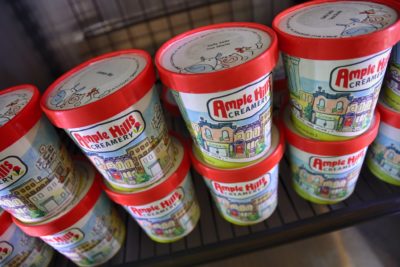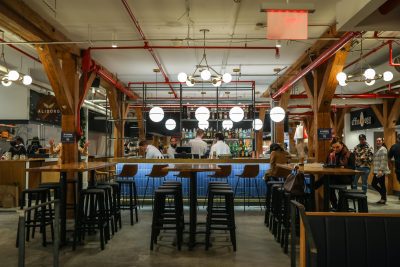Sponsored
|Sponsored
-Jul 19, 2024
BandLab’s ‘Opportunities’ recipient Nialand reinvents herself with resilience
‘When your cup runs dry / Drink hope like medicine,’ the singer-songwriter croons in her quarantine jam ‘Wastqt’
Nialand and her music inspire resilience. The Chicago-based singer-songwriter crafts jazzy soul jams that have a tendency to sonically and lyrically uplift, fortifying a noticeable diversion from a darker, gloomier undercurrent that has defined much of today’s popular music.
Instead of breaking hearts, Nialand seems fixated on mending them, through identifying the pain involved in everyday living — an inevitability no matter who you are — and devising a lyrical roadmap to push through: “I can’t be my own worst enemy today / ‘Cause I got all I need to get away / From what’s blocking my perspective,” she sings in new bass-heavy single “What If I.”
Many of Nialand’s songs sound like love letters, to her listeners and to herself. After releasing a debut record in 2006, Nialand’s songwriting career took a 10-year pause. Now, she is ready to grapple with her time off and the spiritual and creative transformation that followed. The lessons she gleans and shares in her visual album, “Words & Sounds To Quarantine To,” her new singles, as well as on her recently launched podcast, “Creative In Process,” are destined to connect and offer direction along a well-worn path toward reinvention.
With a second full-length album in development, Nialand is reclaiming her spot in pop. As part of BandLab’s Opportunities program and the music creation platform’s ReverbNation service, Brooklyn Magazine has selected Nialand out of 3,000 emerging artists across the globe to highlight.
In this interview, Brooklyn Magazine speaks with Nialand about her upcoming record, the years she has spent songwriting and performing on stage with legendary artists, the spiritual epicenter of her creative process, and more.
I picked up a jazzy undercurrent in your original songs. Where does that sound originate for you?
My grandfather was a jazz singer. So when I was growing up, he would teach me jazz scales and how to appreciate the genre. Over time, it just kind of fused into my actual sound.
Do you contribute to any of the instrumentation on your recordings?
No, not yet. For now, my voice is my instrumentation.
Cool, I was just wondering because of the live instrumental version of your song “Inside Out.” It really takes you on a journey.
We actually did a visual a for that, all in real time. I didn’t want to edit anything out; whatever came out, that’s what it was going to be.
I also noticed that you have performed with legends like Roy Ayers and Lupe Fiasco. How did you get into that?
As a fellow Chicago artist, Lupe performed at Lollapalooza in 2008 and I sang background for him. For Roy Ayers, he was in town and I opened for him, then performed vocals for him and we played a local news show together.
When did you first discover your own musical talent, or begin harnessing your own personal sound?
Honestly, it’s something I feel like I’ve always had, I just didn’t know what to do with it. When I was in third grade, we were having an assembly about an upcoming concert program and without thinking I raised my hand and told my teacher that I’m going to write a song and sing it in front of the school. For whatever reason, I wasn’t nervous. I didn’t know how to sing, I had never taken voice lessons or done a choir.
Did you surprise yourself in that moment?
Of course. My family didn’t even know that I sang. They were like, “We’re coming to some assembly, I don’t know what she’s getting ready to do…” But music was just always there for me; I always gravitated to it.
So you didn’t grow up singing in church or anything?
No, I didn’t. I would just sing in my own time. When I got to middle school, I had a teacher who pulled me to the front and had me join the school play, which was a rendition of Sister Act. Lauryn Hill was famously in the movie, so she gave me all these Lauryn Hill songs and now she’s one of my main music influences.
What other music influences are in your pantheon?
TLC. Outkast. Prince. Even beyond the actual musicality, I was always attracted to the character and personalities of these artists being really out of the box.
I’ve noticed there’s an inherent positivity and courageousness that drives a lot of your lyricism. Do you think your writing style has come down from some of your music idols?
Definitely. All of them individually have a uniqueness about them; they tell it like it is in their own space through their own experiences. That gave me courage to write from my personal experiences. I always try to find a way to inspire a conversation with a song. Even if it’s upbeat and feel-good, I want substance in my words.
Do the messages you’re trying to spread to listeners mirror conversations you are also having with yourself?
Yes. When I get in the zone and I’m writing a song, once the song is done I can’t remember how the song came to be. I always want to write in a way that a song has its whole. It could be some type of conflict, but what’s the end result? I think there’s a space to be vulnerable but I also think there’s a responsibility to making art. Once I’ve gotten past what the issue is and I’m fine, I try and check that the listener has something to take away from the song without getting stuck in the emotion of it.
So your songwriting process is tied directly to your own experience moving through time?
Yeah, even if it’s just a small encounter that I build on. In some way I need to find a connection to it.
One of the stand-out tracks from your recent work is “Wastqt,” or “Words and sounds to quarantine to.” How did quarantining during the pandemic serve you and your music?
It was this project that helped me get through. Prior to quarantine, I had released “Inside Out” but then I couldn’t do anything with it because of the pandemic. I’m a full-type musician and touring opportunities dried up so there were no options. So I just began to write about being stuck in this space. The writing quickly amounted to an EP, which then became a short film I directed around the music.
It’s impressive that you were able to keep working through that period of uncertainty.
At the time, I shut down, but writing songs was how I got myself back up. I felt a responsibility to make a record of the times and do our art, so people in the future can go back and see what was actually happening. The visual component especially gave the project and myself some life beyond the dark moment we were all going through.
With hope as a major theme in your music, what is it like listening to and finding inspiration in darker music that no one would ever call “hopeful”?
If I’m honest, it’s harder to find inspiration in newer music. It seems very on trend to have the most negative music possible. But I still love all different genres. I can hear a melody in any kind of song and feel my mind incorporate it into something I’m working on.
Maybe that’s why your music did stand out to me. It’s more positive than most songs I’m used to hearing these days. I noticed a bible verse in your Instagram bio. Would you describe yourself as religious?
It’s definitely more of a spiritual thing. My belief system is rooted in Christianity but I’m more interested in how people live their values in their everyday lives.
How does that spiritual belief system impact your songwriting?
It keeps me grounded. I need to make sure I’m keeping my integrity intact because there’s something I want to represent and express through my music that’s relatable to anybody without forcing it on them.
There’s a decade between your first full-length record, which came out in 2006, and your recent work. Are you building toward a follow-up album?
The project I’m working on now, a full-length album, looks at how I started doing music and where I am now, including my pause. I stopped putting out new music after my first album. I had to reassess my career and reclaim my passion for it. Right now, I’m giving myself some space to experiment with new sounds and ways I can present it visually.
You might also like 























